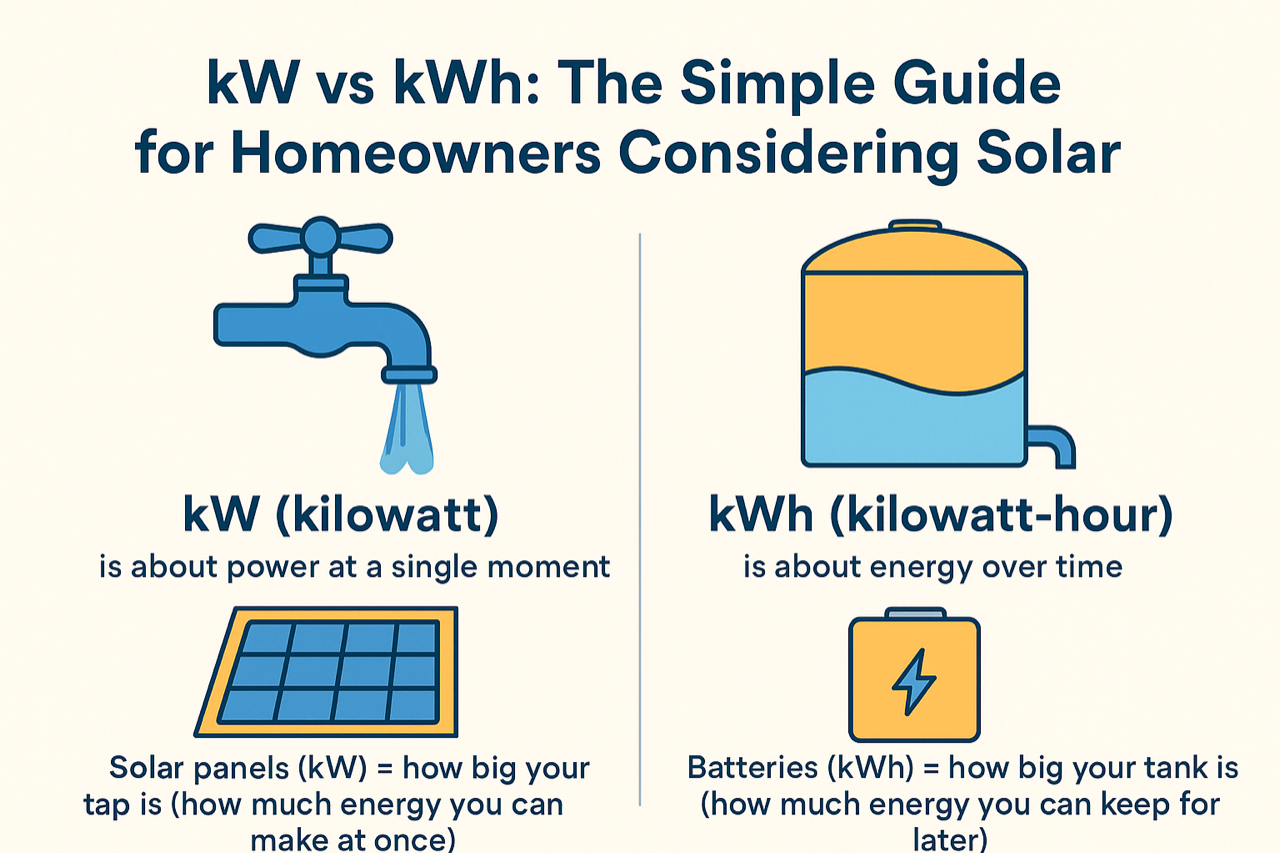kW vs kWh
A simple guide for homeowners considering solar

When researching solar and batteries, you'll quickly come across two terms that sound almost identical: kW and kWh. While they're related, they mean very different things - and understanding them makes choosing the right system much easier.
Think of it like this: kW (kilowatt) is about power at a single night or during blackouts. moment. It's like the size of a water tap - how much water can flow out right now. In solar, kW usually refers to the size of your system. For example, a 5kW solar system can produce up to 5kW of power when the sun is shining brightly.
kWh (kilowatt-hour), on the other hand, is about energy over time. This
is like the size of a water tank - how much water you can collect and
use later. Your electricity bill is measured in kWh, and batteries are
rated in kWh too. For example, if you run a 1 kW appliance for 5 hours,
you've used 5 kWh. A 10 kWh battery could store that amount of energy
for use after sunset.
For homeowners, the takeaway is simple:
Solar panels (kW) = how big your tap is (how much energy you can make at once).
Batteries (kWh) = how big your tank is (how much energy you can keep for later).
By understanding this difference, you'll be able to size your solar and battery system correctly - ensuring you generate enough power during the day and store enough to use at Think of it like this: kW (kilowatt) is about power at a single night or during blackouts. moment. It's like the size of a water tap - how much water can flow out right now. In solar, kW usually refers to the size of your system. For example, a 5kW solar system can produce up to 5kW of power when the sun is shining brightly.






![Power[+]](https://cdn.nimbo.com.au/assets/6dfe08eda761bd321f8a/3615d8c9d05ec6e86d5bbad7/uploads/brand-power.png)